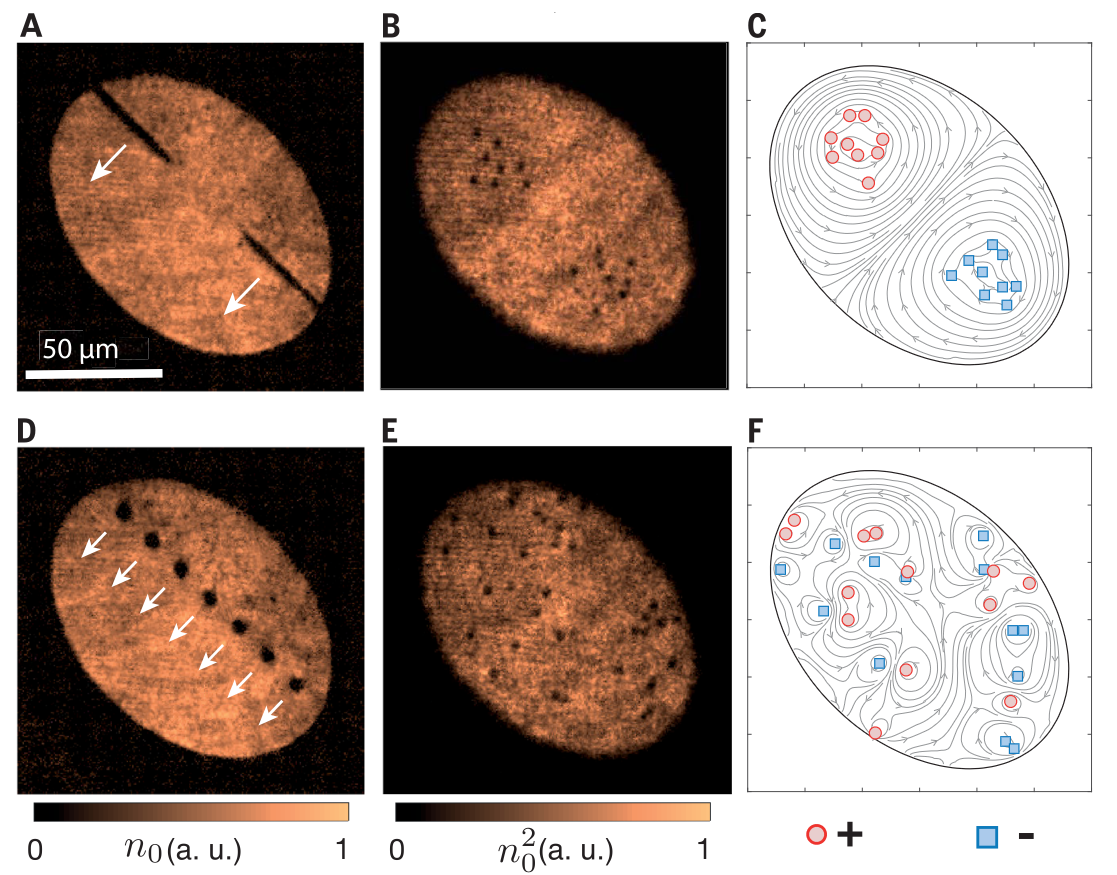
Publications

Viability of rotation sensing using phonon interferometry in Bose-Einstein condensates
Charles W. Woffinden, Andrew J. Groszek, Guillaume Gauthier, Bradley J. Mommers, Michael. W. J. Bromley, Simon A. Haine, Halina Rubinsztein-Dunlop, Matthew J. Davis, Tyler W. Neely, Mark Baker, SciPost Phys. 15, 128 (2023) - Published 2 October 2023
In this work, we cool down rubidium atoms to close to absolute zero to form a Bose Einstein Condensate. We form this condensate into a ring, then create sound waves travelling around the circumference of the ring. These sound waves (or phonons) create a standing wave in the density of the condensate, with high- and low-density points around the ring which act as markers. Due to the superfluid nature of the condensate, these markers stay in the same location of the ring and don’t rotate, even if the lab frame of reference is rotating (e.g. due to Earth’s rotation). This means that these markers act as an absolute frame of reference - like the north-seeking pole on a compass and so could potentially be used for navigation in situations where satellite navigation is not available e.g. under water.

Turbulent Relaxation to Equilibrium in a Two-Dimensional Quantum Vortex Gas
M. Reeves et. al
Phys. Rev. X 12, 011031
In this work, we explored the relaxation of initially non-equilibrium configurations of vortices. Impressively, the vortex configurations in equilibrium were found to closely match the predictions of the point vortex model.

Universal dynamics in the expansion of vortex clusters in a dissipative two-dimensional superfluid
Stockdale Oliver R. et al, 2020
Physical Review Research, 2, 3
A large ensemble of quantum vortices in a superfluid may itself be treated as a novel kind of fluid that exhibits anomalous hydrodynamics.

Quantitative Acoustic Models for Superfluid Circuits
Gauthier Guillaume et al, 2019
Physical Review Letters, 123, 26
We experimentally realize a highly tunable superfluid oscillator circuit in a quantum gas of ultracold atoms and develop and verify a simple lumped-element description of this circuit.

Giant vortex clusters in a two-dimensional quantum fluid
Gauthier Guillaume et al, 2019
Science, 364, 6447, pp. 1264-1267
Adding energy to a system through transient stirring usually leads to more disorder. In contrast, point-like vortices in a bounded two-dimensional fluid are predicted to reorder above a certain energy, forming persistent vortex clusters.

Phase and micromotion of Bose-Einstein condensates in a time-averaged ring trap
Bell Thomas A. et al, 2018
Physical Review A, 98, 1
Rapidly scanning magnetic and optical dipole traps have been widely utilized to form time-averaged potentials for ultracold quantum gas experiments.
